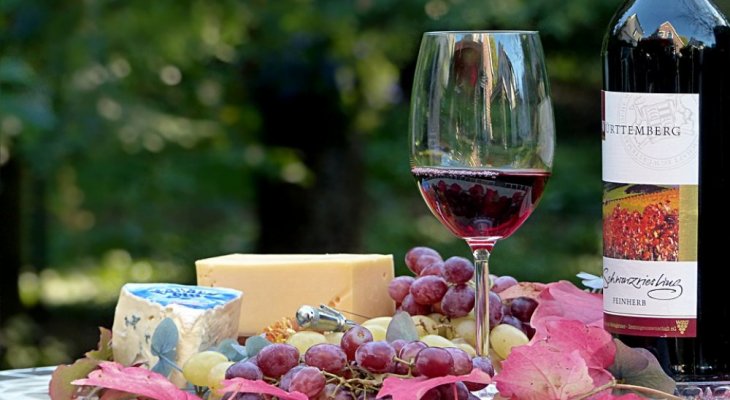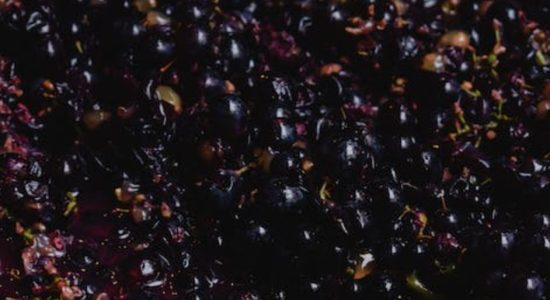What Happens If Wine Ferments Too Long? (4 Tips To Wine Fermenting)

During my recent research of winemaking and especially the fermentation process around it, a question that came to me was whether or not wine can ferment for too long, making it go bad.
The aim of this blog post is to give you a clear view of what can happen if anything can happen if wine ferments too long.
What Happens if Wine Ferments Too Long? Generally speaking, wine can’t ferment for too long. The worse that can happen is a “miscommunication” between the sugar and the yeast due to either using the wrong type of yeast or fermenting under the wrong temperature. Even if this happens, you can still salvage most if not all wines.
Continue reading as I dive into what can happen if you ferment your wine too long, and how to avoid and issues regarding fermenting wine.
Read Also: How To Make Grape Wine Without Yeast
So, What Happens if Wine Ferments Too Long?
First of all it’s worth mentioning that wine can’t really ferment for too long. The fermentation process of wine and any other alcohol naturally stops in most cases.
Some wines like dry wine, leave the fermentation long after it is actually over, this doesn’t spoil the wine batch but gives it a unique taste found in dry wines.
Yeast has a certain tolerance to alcohol, and for wines, the yeast used generally cant withstand alcohol levels higher than 20%.
Yeast is somewhat fragile in wine fermentation. It is a little snobby in terms of the conditions it requires to perform well.
Not only do you have to feed it sugar and keep it conditioned in the right temperature, but you also have to make sure you don’t kill it off too early by creating too high alcohol levels.
Read Also: Best Wine Making Kits 2020
Primary And Secondary Fermenting
When talking about whether wine can ferment too long, it is important to know that there often is a primary and a secondary fermentation process.
What I mentioned earlier in this blog post regarding wine not being able to ferment for too long generally applies to both fermentation processes.
You can, however, ruin your wine by exposing it to unwanted bacteria or other things for too long.
When moving your batch of wine from primary to secondary fermentation, it is important to do it correctly.
Usually what happens in terms of wine, is you transfer the primary fermented batch to another container, typically an oak barrel.
The secondary fermentation is either a sort of repeat of the primary or a newly triggered fermentation done by adding sugars.
The primary fermentation usually includes the use of some oxygen to kick off the fermentation process, however, the secondary fermentation usually uses airtight containers.
In the secondary fermentation, some winemakers add extra sugar to give the yeast more to work with and increase the alcohol potency and taste of the wine.
4 Tips to Wine Fermenting
Winemaking can be a delicate process, the fermenting of the wine can determine the entire quality, taste and look for your wine, so it is crucial to make sure you are doing it correctly.
Here are 4 generally good tips to keep in mind when Wine fermenting:
#1 Clean and sanitize your equipment
This one is a no-brainer, but nevertheless important to remember. Always keep your equipment clean and sanitized when starting a new batch of wine or any other homebrew for that matter.
If you don’t keep your equipment clean and sanitized you can potentially let in unwanted bacterias that can contaminate and ruin your batch.
Yeast works best alone, and any unwanted bacteria or chemicals can result in a wine that tastes quite horrible and is most likely ending up in the drain.
#2 Find The Right Temperature
The most important, and probably the biggest reason fermentation processes in general fail is using the wrong temperature.
If you cool down your fermentation too much it can make the yeast inactive and put the fermentation process to a halt.
If you heat up your fermentation process too much it can outright kill the yeast or create other bacterias or even mold that will contaminate your wine.
The general recommendation for fermenting wine in terms of temperature is to keep the temperature between 70F and 75F.
Read also: The Best Wine Coolers
#3 Understand Your Yeast
When making wine you can choose to add yeast or simply use the natural yeast found in the fruits or berries you are using.
Make sure you understand the difference in how much sugar yeast can absorb.
Storing yeast correctly can give it a longer expiration date.
If you want to buy bulk yeast and store it for longer times, it is a good idea to store your wine yeast in the fridge. Doing this can sometimes double the shell life of wine yeast.
The reason this works is as mentioned earlier, that yeast goes dormant at lower temperatures, thereby giving it a longer shelf life since it is inactive.
NOTE: You should never freeze your yeast since it can potentially damage their cells making the yeast unusable or faulty during your next fermentation.
#4 Get a Hydrometer
During fermentation, it is a good idea to have a hydrometer to track the process. A hydrometer (Amazon link) can track the alcohol content of your batch, giving you a rough estimation of how far along the process is.
Learn more about hydrometers here.
Without a hydrometer, you can’t be entirely sure the fermentation process has completed and having one is just nice security to make sure you don’t waste any potential alcohol that is in the process of being made.
Hydrometer For Wine Making
- Accurate Brewing Measurements: Get precise specific gravity, alcohol, and Brix levels with this triple scale hydrometer alcohol test...
- Break-Resistant Test Jar: This brew hydrometer kit includes a plastic test jar, offering a safer, more durable alternative to glass,...
- Easy to Read Scale: The specific gravity hydrometer has clear, detailed markings ranging from 0.99 to 1.17 for specific gravity, 0 to...
Last update on 2026-01-23 / Affiliate links / Images from Amazon Product Advertising API
In conclusion, it is rather difficult to ferment wine for too long.
As long as you know what you are doing and keep your wine and is contents conditioned right during fermentation, you shouldn’t be able to over ferment your wine.
You can, however, ferment it too long in terms of keeping it in a hostile environment for too long. What is meant by this is there may be unwanted chemicals or bacteria in your equipment, possibly contaminating your wine if you don’t find out fast enough.
Don’t forget to sanitize your equipment both before and after use to be safe!
Can Wine Age For Too Long?
We have talked about wine fermenting for too long, but another great question is whether or not wine can age for too long.
Over time wine changes in colors, flavors, aromas, and general consistency. Here are some things that change as wine ages:
- Red wine loses color
- White wine gains color
- Fruit aromas can mix into more complex smells, often winemakers mix wines for this purpose while aging
- Fruity flavors can turn into a mix of fruity and savory(or just savory)
- Acid and tannin fade. Acid and tannin act as a preservative in wine. These are the reason why wine can age for so long. Monitoring the levels of these is crucial since they can dictate the taste of the wine.
Most wines are actually made to be opened immediately.
Read how to recork an open wine like a professional here.
Most wines are made for the purpose of opening rather soon after completion, aging them for longer can remove some of its intended properties.
The way experts know what wines should age for how long, is analyzing all the different wine types throughout history.
The same applies to make homemade wine, research what the recommended aging of the wine you are aiming to make is, and follow the expert’s advice.
Read Also: 9 Best Wine Enthusiast Wine Fridges








